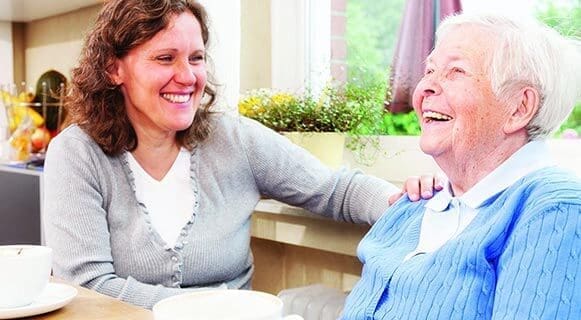Hello, I am Paul Austin
I am pleased to introduce myself and provide insights into my professional journey as the CEO of IP Live-in Care.
I have written a lot of the information here on this site and I thought you might want to know a bit more about who I am, what my professional qualifications are and what I believe in.
My passion for health and care was ignited by a deeply personal experience when a close friend of mine was involved in a serious road traffic accident with a bus. Witnessing the profound impact of the incident on my friend’s life, I was not only moved but also deeply impressed by the comprehensive care and support provided by NHS professionals.
The dedication and expertise displayed by the healthcare team, both in terms of physical rehabilitation and psychological support, left an indelible mark on me. It was more than just medical treatment; it was a holistic approach that addressed not only the physical injuries but also the emotional and psychological well-being of my friend.
This experience served as a powerful inspiration for me to explore a career in healthcare as a Physiotherapist. Witnessing firsthand the positive influence that healthcare professionals can have on an individual’s life fueled my determination to contribute to the well-being of others in a similar capacity. It was this pivotal moment that shaped my decision to pursue a degree in Physiotherapy and ultimately led me to a fulfilling path within the National Health Service.
After earning my B.Sc.(Hons) degree in Physiotherapy, I became a full member of the Chartered Society of Physiotherapy (CSP) and earnt State Recognised Chartered Physiotherapist (SRP) status. I then ventured into the National Health Service (NHS), which I value so much, to embark on my journey into healthcare.
In this new capacity of a healthcare professional, I navigated through a spectrum of NHS rotations, encompassing respiratory medicine, the critical landscape of intensive care, diverse medical specialties, and the nuanced field of medicine tailored for older adults. These experiences profoundly shaped my understanding of the multifaceted needs within our healthcare system.
In the course of these rotations, a revelation struck me—the profound impact Physiotherapy could exert on the mental and physical well-being of our aging population. Consequently, my commitment to advocating for the significance of Physiotherapy, particularly for older adults, became a cornerstone of my professional ethos. Instead of positively improving the outcomes for one person at a time, I wanted to widen my practice approach to impact a wider population.
Seeking to broaden my scope, I transitioned beyond clinical practice to contribute professionally to the NHS Institute of Innovation and Improvement. Here, my role involved facilitating collaborations between local charities and NHS services, fostering a more interconnected healthcare ecosystem. This also included working with both local and strategic NHS bodies to learn and make improvements there too.
In this trajectory, my career led me to the role of being placed as an NHS Clinical Services Manager. In this capacity, I managed the intricate details of maternity care services, ensuring that each expectant mother received the highest standard of support. Simultaneously, sponsored by the NHS and with aspiring director status, I pursued academic advancement by undertaking an MSC in Healthcare Management at the Universities of Manchester and Birmingham. This course was designed as a collaborative venture between both Universities and the NHS to help grow the next generation of healthcare senior leaders and was supplemented with additional intensive growth and reflection workshops that crossed many subjects.
After this period, proudly as the new NHS Head of Improvement in Essex, my focus shifted to orchestrating positive changes in all patient pathways. I particularly paid specific attention to palliative care and services for older adults in the community. This role was more than a professional endeavour; it was a mission to enhance healthcare delivery and effect tangible improvements in the lives of many individuals.
My time in the NHS came to an end when I saw the many improvements that were required in the Social Care sector. I had a new mission. I wanted to help those people receiving care in their own homes. A place not visited often enough by existing NHS Services.
For the last 13 years I have held key roles in the social care sector, serving previously as an approved Registered Manager for home care services and now as a director in two social care organisations that specialise in Live in Care. Additionally, my history of involvement as a trustee in a charity and other social ventures, including as a member of a local government body, underscores my dedication to community welfare. People use the word passionate lightly quite often, but I really am driven to improving the lives of others.
I am still proud to maintain my membership with the Chartered Society of Physiotherapy (MCSP), underscoring my steadfast dedication to professional excellence. Membership in the CSP reflects a pledge to uphold the utmost standards of professional practice. This commitment entails staying abreast of the latest advancements in healthcare as a profession allied to medicine, abiding by a stringent code of ethics, and actively engaging in continuous professional development. By doing so, I ensure I remain at the forefront of care, contributing to the ongoing progress and integrity of the Live in care and social care professions.
The concept of live-in care is a transformative approach that offers profound benefits for both younger and older adults. This holistic model of care, where a trained professional resides with the care recipient, provides a personalised and supportive environment that fosters well-being and independence.
For older adults, live-in care represents a paradigm shift from traditional care settings. It allows individuals to age in the comfort of their own homes, surrounded by familiar settings and cherished memories. This continuity of environment has significant emotional and psychological advantages, promoting a sense of security and reducing the stress associated with relocation.
Live-in care is particularly valuable for older adults with complex health needs, as it ensures continuous monitoring and immediate response to any changes in health conditions. The presence of a dedicated caregiver around the clock not only enhances safety but also contributes to the overall improvement of the individual’s quality of life.
For younger adults with disabilities or chronic conditions, live-in care provides essential support for the activities of daily living. This model enables individuals to maintain their independence while receiving personalised assistance tailored to their specific needs. The caregiver becomes a consistent companion, fostering a sense of empowerment and emotional well-being.
From a broader perspective, live-in care aligns with the principles upheld by professional organisations like the Chartered Society of Physiotherapists. It emphasises a person-centered approach, acknowledging the importance of tailored care that consider the unique requirements and preferences of everyone. This not only ensures the physical well-being of the care recipient but also contributes to their emotional and social fulfilment.
As a member of the Chartered Society of Physiotherapy, my commitment to improving the lives of older adults resonates deeply with the value I place on live-in care. This model embodies the principles of continuous support, personalised attention, and a commitment to whole person well-being, aligning seamlessly with the ethos of professional care. In essence, live-in care becomes a cornerstone in the broader landscape of care, contributing to the advancement and recognition of the profession while making a meaningful impact on the lives of those it serves.
In summary, although my journey spans from the intricate clinical rotations of the NHS to weaving a tapestry of improvement and care across various roles, I still think back to the dedication of those that helped my friend all those years ago and the positive changes they brought.
I am Paul Austin, driven by a passion to make a positive impact on your healthcare.



